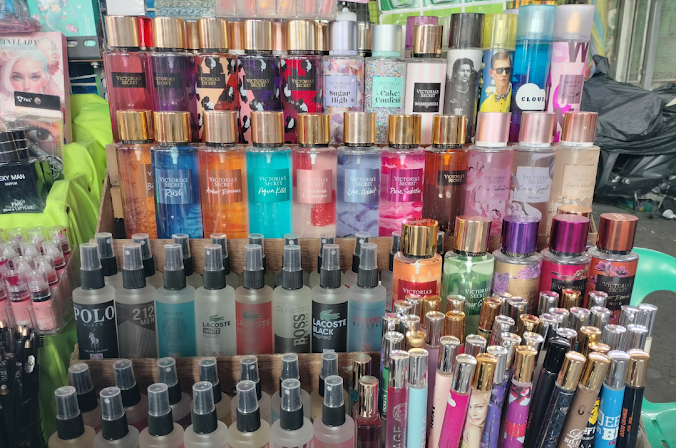Beware the counterfeit scents
What to look out for when buying fragrances and perfume
At A Glance
- Phthalates, commonly used as solvents and stabilizers in perfumes, are identified as potent hormone disruptors linked to birth defects in baby boys

After the December rush, several items often go on sale as markets try to sell their excess stock from the holiday season. Among those products that get slashed prices are cosmetic items like fragrances and perfumes. Although these lower prices can be enticing, it’s always important that we stay vigilant in ensuring we steer clear of counterfeit scent products as these can contain harmful chemicals that can harm our bodies.
Toxic watchdog group Ban Toxics has recently issued a public warning about the sudden surge of imitation and counterfeit perfumes and fragrances in the market. After a recent market monitoring effort, the group discovered many ambulant vendors peddling cheap imitated perfumes and fragrances priced between ₱50 to ₱180. These counterfeit perfumes closely mimic the packaging and labels of well-known brands, making them appealing to consumers. Based on reports from the Intellectual Property Office of the Philippines, perfume and beauty products ranked second as the most counterfeited goods in the Philippines last 2022.
“Buying perfume and fragrances that have not undergone proper authorization is not only too risky but may expose consumers to harmful substances lurking in the products,” says Ban Toxics campaigner Thony Dizon.
To safeguard against the dangers of counterfeit fragrances, consumers must remain vigilant and informed. Always make sure the products you purchase have not been tampered with. Check the labels to see what ingredients the scent consists of. Be on the lookout for certain chemicals that are considered as toxic. Phthalates, octoxynols, and nonoxynols are some toxic chemicals highlighted by Ban Toxics.
Phthalates, commonly used as solvents and stabilizers in perfumes, are identified as potent hormone disruptors linked to birth defects in baby boys. Octoxynols and nonoxynols can break down into persistent hormone disruptors as well. If there are chemicals listed that you are unfamiliar with, do some proper research to see if they are safe for the body.
“As part of our safe cosmetics campaign, we’re committed to monitoring and reporting the unauthorized sale of unregistered and unnotified personal care products in both on-site and online markets,” says Dizon. “To protect human health and the environment from chemical exposure is our advocacy.”
To be on the safe side, only use products approved by the Food and Drug Administration (FDA) and opt for purchasing products from official and verified sellers.